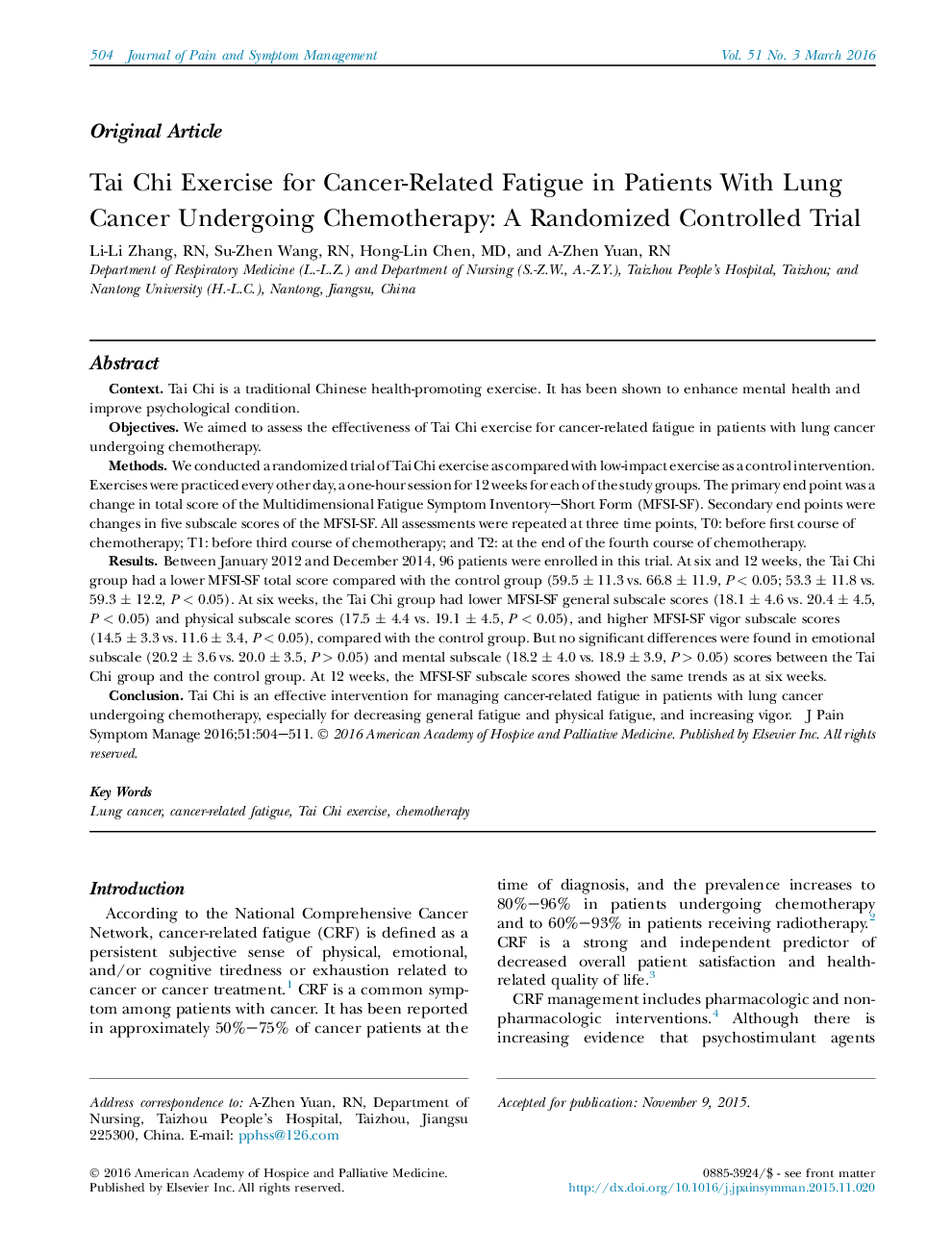| کد مقاله | کد نشریه | سال انتشار | مقاله انگلیسی | نسخه تمام متن |
|---|---|---|---|---|
| 2729727 | 1147155 | 2016 | 8 صفحه PDF | دانلود رایگان |
ContextTai Chi is a traditional Chinese health-promoting exercise. It has been shown to enhance mental health and improve psychological condition.ObjectivesWe aimed to assess the effectiveness of Tai Chi exercise for cancer-related fatigue in patients with lung cancer undergoing chemotherapy.MethodsWe conducted a randomized trial of Tai Chi exercise as compared with low-impact exercise as a control intervention. Exercises were practiced every other day, a one-hour session for 12 weeks for each of the study groups. The primary end point was a change in total score of the Multidimensional Fatigue Symptom Inventory–Short Form (MFSI-SF). Secondary end points were changes in five subscale scores of the MFSI-SF. All assessments were repeated at three time points, T0: before first course of chemotherapy; T1: before third course of chemotherapy; and T2: at the end of the fourth course of chemotherapy.ResultsBetween January 2012 and December 2014, 96 patients were enrolled in this trial. At six and 12 weeks, the Tai Chi group had a lower MFSI-SF total score compared with the control group (59.5 ± 11.3 vs. 66.8 ± 11.9, P < 0.05; 53.3 ± 11.8 vs. 59.3 ± 12.2, P < 0.05). At six weeks, the Tai Chi group had lower MFSI-SF general subscale scores (18.1 ± 4.6 vs. 20.4 ± 4.5, P < 0.05) and physical subscale scores (17.5 ± 4.4 vs. 19.1 ± 4.5, P < 0.05), and higher MFSI-SF vigor subscale scores (14.5 ± 3.3 vs. 11.6 ± 3.4, P < 0.05), compared with the control group. But no significant differences were found in emotional subscale (20.2 ± 3.6 vs. 20.0 ± 3.5, P > 0.05) and mental subscale (18.2 ± 4.0 vs. 18.9 ± 3.9, P > 0.05) scores between the Tai Chi group and the control group. At 12 weeks, the MFSI-SF subscale scores showed the same trends as at six weeks.ConclusionTai Chi is an effective intervention for managing cancer-related fatigue in patients with lung cancer undergoing chemotherapy, especially for decreasing general fatigue and physical fatigue, and increasing vigor.
Journal: Journal of Pain and Symptom Management - Volume 51, Issue 3, March 2016, Pages 504–511
